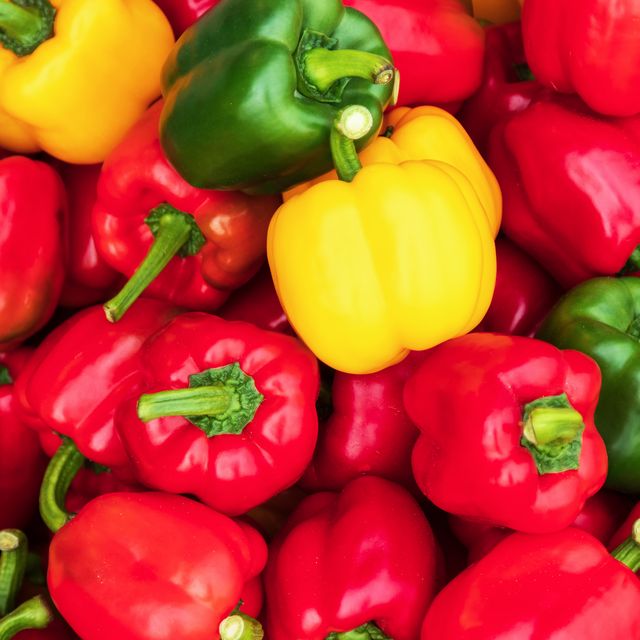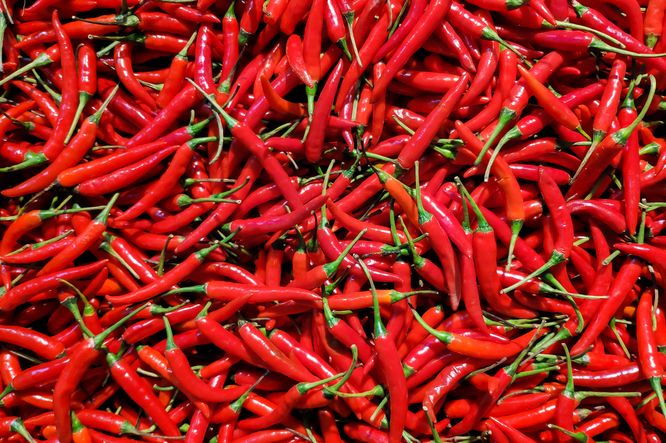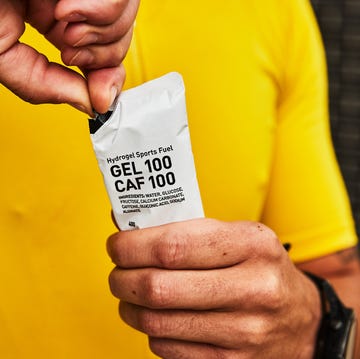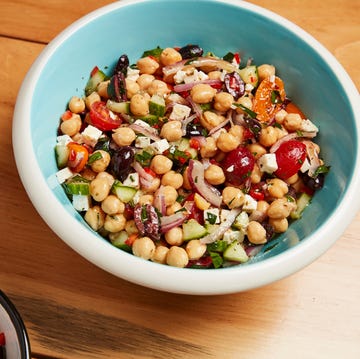Peppers make a great, flavorful addition to many meals. Whether you sauté bell peppers to add to stir fry, slice them up to pack as an on-the-go crunchy snack, or use chili peppers to add some spice to your meals, you probably keep them as a fridge staple.
And it turns out, this popular veggie is chock-full of important nutrients, and is especially good for runners. Whether you like some spice or prefer the sweeter version, you can reap the benefits no matter the kind of pepper you eat.
[Smash your goals with a Runner’s World Training Plan, designed for any speed and any distance.]
We tapped New York City-based dietitian Natalie Rizzo, M.S., R.D., to fill us in on everything runners should know about the health benefits of peppers.
What are the health benefits of peppers?
Peppers have two important things runners need—water and vitamin C. They are about 90 percent water and have more vitamin C than an orange. (A red bell pepper contains 77.6 mg of vitamin C per serving, while an orange contains 53.2 mg per serving, according to the USDA FoodData Central.)
“That means they can help keep you hydrated and increase the immune system,” says Rizzo.
And, both fresh and frozen peppers have exactly the same benefits, so you can eat the peppers however you prefer. Frozen veggies are picked at the peak of freshness and flash frozen to lock in nutrients, says Rizzo.
If you prefer cooked peppers versus fresh, that’s okay, too, as the nutritional value is minimal. The one thing to keep in mind—how it’s being cooked.
“The difference between fresh and cooked veggies is minimal, but you’ll also want to consider what you use to cook the veggie. For instance, if you use oil, that adds calories and fat to your meal,” says Rizzo.
What’s the nutrition in bell peppers?
Aside from helping boost hydration and vitamin C levels, bell peppers are also packed with other important nutrients. They contain vitamin A and potassium, which are essential for maintaining muscle mass and healthy blood pressure. And, they are a great source of fiber, which runners need for a healthy digestive system.
Research has also found that getting enough daily fiber (25 to 29 grams) can help lower your risk of death from heart disease. Plus, they also provide folate and iron, necessary for carrying oxygen to your muscle to power them and utilizing carbs for energy during exercise.
Are hot peppers good for you?
Hot peppers get their spiciness from the presence of a compound called capsaicin—and the more capsaicin in a pepper, the spicier it is. Bell peppers, for example, have no capsaicin, while a chili pepper has far more. Hot peppers are believed to increase metabolism, due to the presence of capsaicin. But the amount of capsaicin used in most studies is way more than a normal person could eat in one sitting, says Rizzo.
For example, a randomized controlled trial looked at the impact of eating just half a teaspoon of cayenne pepper and researchers found it only burns about 10 calories. It’s not really as consequential as many people believe, says Rizzo. So while you like won’t see metabolism-boosting benefits, you can still eat hot peppers, if they don’t upset your stomach.
And, recent research from the American Heart Association Scientific Sessions 2020 says eating chili peppers can reduce your risk of early death from all causes, especially heart disease and cancer, by about 25 percent.
Is it good to eat peppers every day?
If you like peppers, enjoy them as much as you like—you can eat them every day or even at every meal, says Rizzo.
However, it’s important to eat everything in moderation. According to the USDA, one serving of a raw bell pepper is 3.5 ounces (100 grams), which is about half of a bell pepper.
Bottom line: If you already enjoy peppers in your diet, they are a great source of hydration and vital nutrients. And, if you don’t eat them already, there are many different types of peppers you can try—and likely find one that you like. Remember, even though they are healthy, it’s important to eat everything in moderation.
















